A Constitution for Community
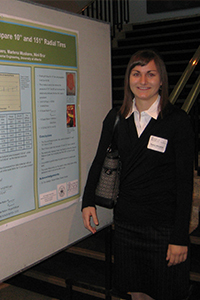
When she was a child waiting for the elementary school bus to make its way down the road to her acreage, professional engineer Nancy Manchak would read the Edmonton Journal with her father.
She’s always had a keen interest in what was going on in her community—on a local and global scale. Her fascination with the world around her persisted into high school. She was planning to study public policy and political science in post-secondary when her talent for math and science earned her an opportunity that would change the trajectory of her future.
With the encouragement of her high school science teacher, Manchak applied and was accepted into the Women in Scholarship, Engineering, Science, and Technology (WISEST) Summer Research Program, which places young women and gender-diverse students in paid roles in labs less traditionally occupied by their gender. She worked as a research assistant in a mining engineering lab at the University of Alberta (U of A), where she delved into projects like improving the life cycle and design of tires, lessening their impact on the environment with three fellow students. "That was really an inflection point,” she expresses. “That was when I truly started to see what engineering was, the opportunities it brings, and how it could be a foundation for so many different paths.” It was then that she also began to connect with other women who love science and engineering. She returned to the U of A upon graduating high school and completed her co-op degree in materials engineering in 2014.
A communal consideration
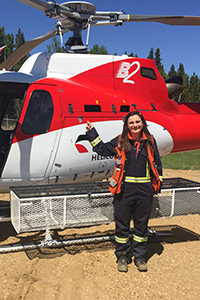
Manchak went on to complete her masters in earth and energy resources leadership at Queen’s University in Ontario, where she gained a skill set focused on interdisciplinary perspectives around the resource sector. She leverages that knowledge in her current role designing and constructing pipeline projects for a gas utility company, where she communicates technical decisions to the public in a digestible way and considers the impact of a project’s life cycle on the surrounding environment and community.
Her desire to create vibrant communities influences her wholistic approach to her work as an engineer. She enjoys marrying the technical side of engineering and design considerations with non-technical elements. “In projects and operations, we need to think about environmental considerations combined with how we are meeting regulations and ensuring safety, and who we’re serving. It’s an important balance.”
She considers this meld of technical and non-technical an important part of self-regulation for professional engineers. “It’s doing everything we can in the public’s interest, and really safeguarding that. Self-regulation through APEGA ensures that we’re doing everything we can in the best, safest way possible.”
A society of inclusion
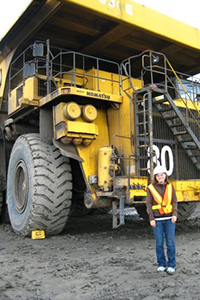
She expresses the sense of community goes further than just being an engineer in a professional collective. “I feel like building connections and having that safe, inclusive space where you can be yourself especially helps. Connecting with those who have similar experiences can make all the difference.”
Manchak credits the WISEST program for helping create this safe space for her from the beginning. “I remember walking into my first-year engineering classes, and there’s a sea of students.” As she scanned the room, she recognized friendly faces from the summer program. Networking and connecting people with one another can help professionals achieve the same result in their careers, explains Manchak. “It starts to feel less like you’re an island and that you have more of that support structure.”
A social circle
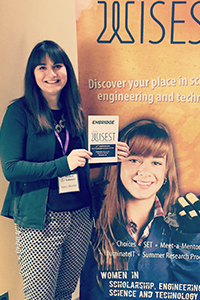
In July 2020, Manchak was elected a University of Alberta senator and in fall of 2021, she joined the Women in APEGA Advisory Group. Of the latter volunteerism, she says, “Seeing change and impact at a system and process level has been incredibly rewarding.”
She’s proud to provide value to the professions by providing feedback on inclusive practices and ethical guidelines, as well as supporting APEGA’s 30-by-30 initiative. She sees a three-pronged approach successfully increasing the number of women in the professions: attraction, engagement, and retention. “I love being able to play a small part in the overall conversation. I love being a part of the group asking questions like, ‘What are we doing as an organization in the K-12 space? When women choose engineering as an undergraduate, or when they’re working, do they feel like they belong? Are we giving guidelines on managing transitions?’”
Manchak explains it’s all about stepping outside of your own beliefs and experiences. “You don’t want to be surrounded by people who agree with you. You want to seek out those contrary opinions and perspectives, so you have something stronger in the end.”
Featured in this article
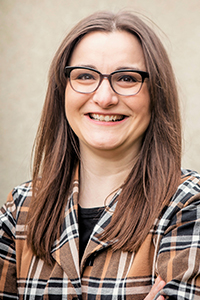
Nancy Manchak, P.Eng.
